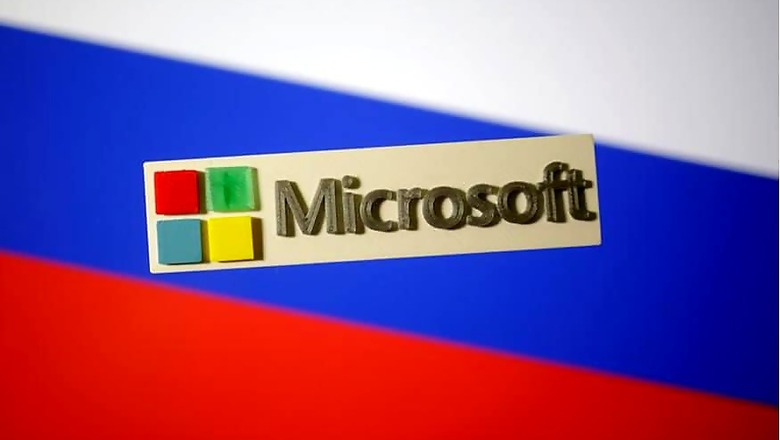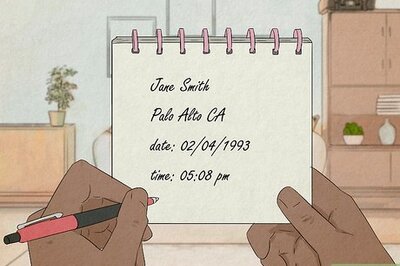
views
Microsoft has an eye on its international customers as it confronts the Trump administration in a Supreme Court fight about turning over emails to investigators. The justices will hear arguments Tuesday over whether the company, as part of an international drug trafficking investigation, must comply with an American warrant for emails stored on a server in a Microsoft facility in Dublin, Ireland.
The case turns on a law written in 1986, long before the advent of cloud computing, when lawmakers couldn’t imagine a world in which Microsoft and other technology companies store data around the world. The Stored Communications Act sets rules for authorities when they want to gain access to electronic communications. A federal appeals court agreed with Microsoft that the emails were beyond the warrant’s reach because they are kept outside the United States.
But the larger context is the technology sector’s need “to give customers around the world confidence that they can rely on us," Microsoft’s president, Brad Smith, told reporters in a telephone call Thursday. The concerns stem in part from the 2013 leak of classified information detailing America’s surveillance programs and the role Microsoft and others played in turning over emails and other information.
Smith recalled a conversation in Berlin in which a German official warned that Microsoft and its American rivals risked losing foreign business if they couldn’t protect their information from the U.S. government. “I said then that we’d persist with this case all the way to the Supreme Court, if that were necessary. That’s where we are today," Smith said. Amazon, Apple, Facebook, Google and IBM are among other technology companies backing Microsoft.
The Trump administration said it’s wrong to look at this case as involving foreign data. Microsoft can send data wherever it wants and retrieve information from around the world with a few clicks of a mouse at its Redmond, Washington, headquarters, the administration said, holding the same view as the Obama administration. The problem is even more complex for information held by Google, which “stores the emails of U.S. users all over the world, sometimes breaking an account into multiple ‘shards,’" Solicitor General Noel Francisco wrote in his Supreme Court brief. Google sometimes stores the text of an email in one place and attachments in another, Francisco said.
Thirty-five states on the government’s side say a win for Microsoft would especially hamper drug and sex crime investigations. The technology companies have built data centers around the world to keep up with customers’ demands for speed and access. Microsoft maintains servers at more than 100 locations in 40 countries, according to court papers. A federal judge in New York signed the warrant for the Microsoft account in December 2013. Investigators believed it was being used in illegal drug transactions. Court documents say nothing about the account holder’s citizenship or country of residence, but Smith said Microsoft’s policy is to store data in the country where the user lives or in a center closest to that country.
Microsoft turned over information about the user of the account, but went to court to defend its decision not to hand over the emails from Ireland. For as much interest as the case has drawn — 30 briefs from other technology companies, foreign governments, civil liberties groups, media companies and privacy experts — Congress could limit the effect of a high court ruling or make the case go away altogether if it were to pass bipartisan legislation updating the 1986 Stored Communications Act. The proposed legislation, known as the Cloud Act, has the backing of the administration and Microsoft.
Smith said Microsoft agrees that “law enforcement needs information across borders," but that should happen under “a new generation" of U.S. and international laws. The Cloud Act says “the location of data shouldn’t matter," said Jennifer Daskal, an American University law professor. But it also includes a provision that would allow technology companies to resist some government requests for information, Daskal said.
Privacy experts say the legislation does not do enough to protect consumer interests either in the United States or abroad. A decision in U.S. v. Microsoft, 17-2, is expected by late June.
Watch: Tech and Auto Show Ep 31 | Auto Expo 2018 Special | Unveilings & Launches




















Comments
0 comment